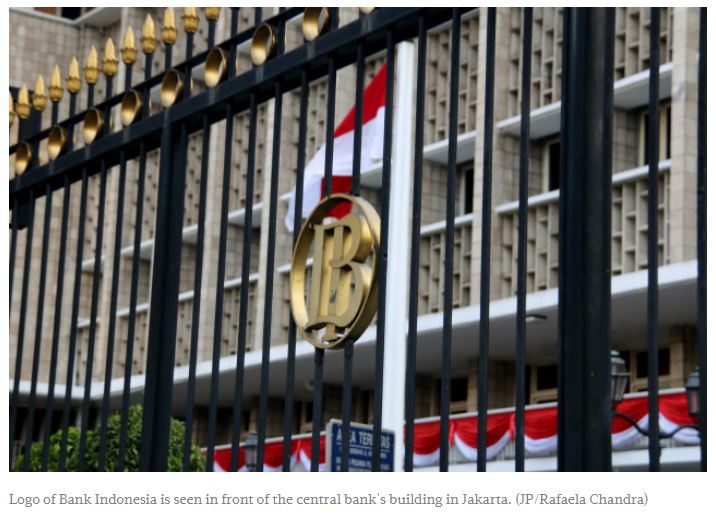Indonesia moves closer to rate cut on virus
Indonesia’s central bank may be ready to cut interest rates again after a three-month pause as policy makers look to head off the impact of the coronavirus on Southeast Asia’s biggest economy.
Bank Indonesia will probably lower its benchmark rate by 25 basis points to 4.75 percent Thursday, according to 19 of the 31 economists surveyed by Bloomberg. The rest see no change. The central bank, which reduced rates four times last year, has already flagged room for further easing.
While Indonesia — the world’s fourth most-populous nation — is yet to record a single case of the deadly virus, officials are increasingly worried about the fallout from the epidemic. A shutdown of factories in China to contain the outbreak has disrupted supply chains, while travel curbs have hurt tourism across the region.
“We expect a significant impact on Indonesia’s trade, tourism foreign exchange earnings and GDP growth from the global outbreak of the coronavirus,” said Satria Sambijantoro, an economist at PT Bahama Sekuritas in Jakarta. That’s likely to result in “front-loaded economic stimulus” from Bank Indonesia and the finance ministry, he said.
Asia is stepping up efforts to blunt the impact of the coronavirus crisis with the Philippines, Thailand and Sri Lanka cutting interest rates in recent weeks, and others like Singapore planning significant fiscal stimulus.
Coronavirus fallout
The government had been forecasting a pickup in growth this year to 5.3 percent but that’s now under threat because of the virus outbreak.
Any action by the central bank will come on top of a fiscal boost the government is planning by accelerating spending, including on about US$9.2 billion earmarked for villages and schools. Government revenue is under pressure though, dropping 4.6 percent in January from a year ago as corporate tax collection plunged 29 percent, Finance Minister Sri Mulyani Indrawati said Wednesday.
The virus may also have an impact on inflation, which has so far remained subdued, coming in at 2.7 percent in January. Garlic prices surged almost 70 percent in Jakarta in just one week after shipments from China were disrupted. China accounts for about 80 percent of the world’s garlic supply, and Indonesia sources 90 percent of the root vegetable from there.
Trade worries
The outlook for trade has deteriorated with a slump in exports in January set to continue. Indonesia is the world’s biggest exporter of coal and palm oil, and with China a major customer, the Trade Ministry has warned of a deeper hit to exports in the months ahead.
A drop in exports would put strain on the current account deficit, a key concern for the central bank. The shortfall widened to 2.8 percent of gross domestic product in the fourth quarter from 2.6 percent in the previous three months.
Stable currency
While the rupiah has weakened in recent weeks, it’s still up more than 1 percent against the dollar since the start of the year, making it the best-performer in Asia.
“The stability of the rupiah, despite external risks, should drive the central bank to prioritize economic growth, which is facing headwinds on multiple fronts,” said Mohamed Faiz Nagutha, an economist with Bank of America Securities in Singapore.
“The central bank had also previously communicated that it stands ready to utilize its policy easing space at the ‘right timing’. Given the growing external risks and subdued domestic outlook, we believe the timing is right once again to commence monetary easing,” he said.
Source: https://www.thejakartapost.com/news/2020/02/20/indonesia-moves-closer-to-rate-cut-on-virus.html


 Thailand
Thailand




